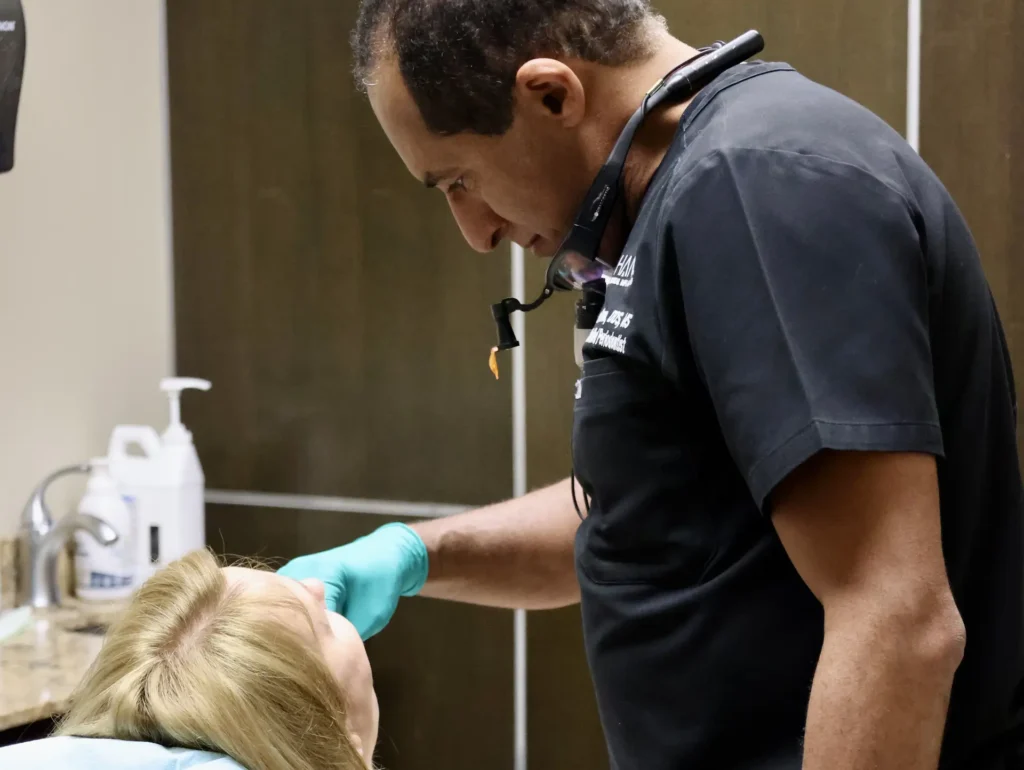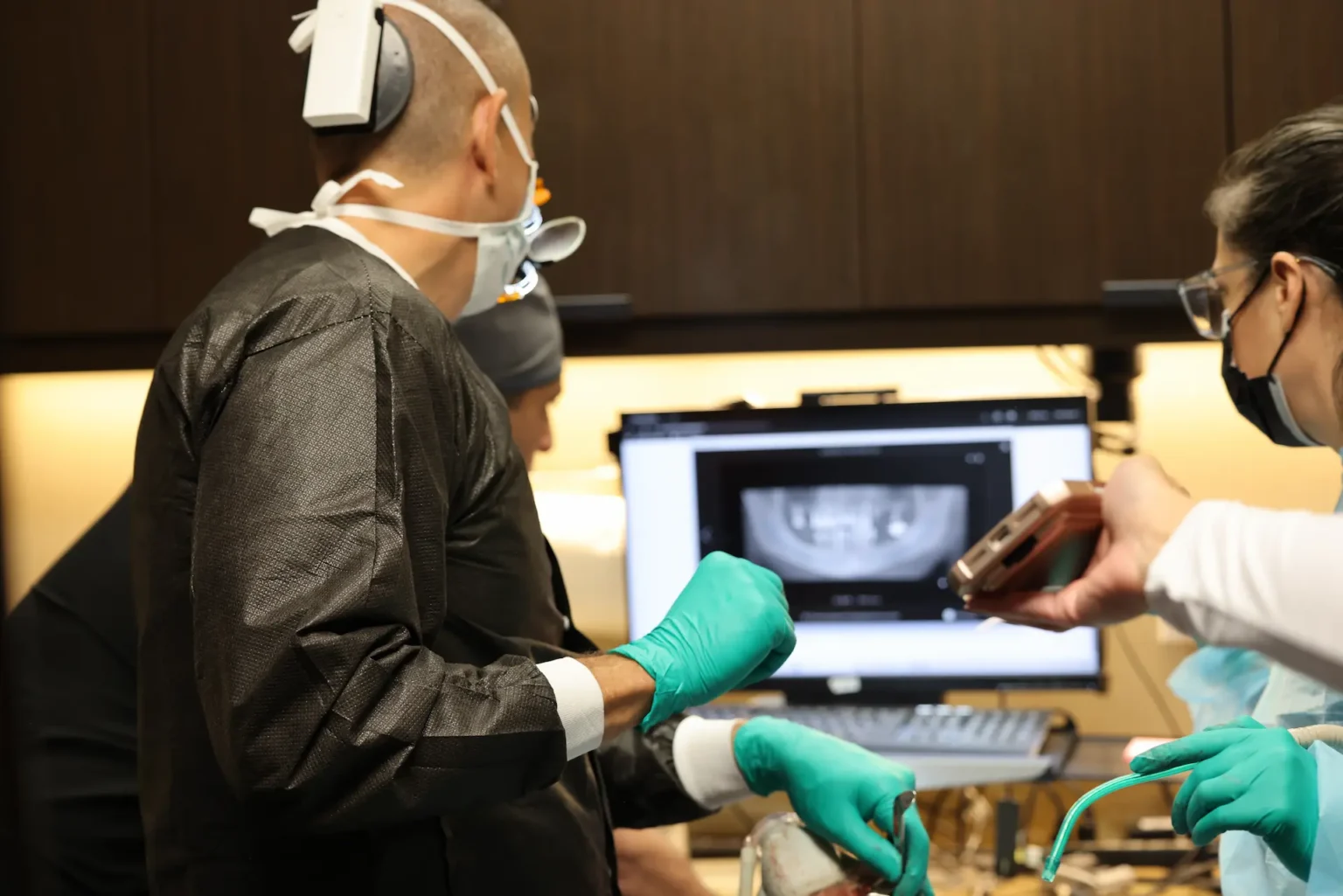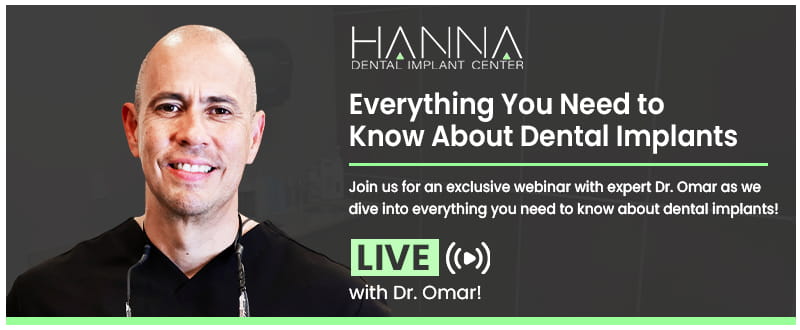If ignored, tooth infections can lead to serious health problems, including infections that spread to other parts of the body, like the brain. Recognizing the signs early and seeking treatment can prevent complications.
Research shows that gum disease, missing teeth, and poor oral hygiene can increase the risk of health issues like stroke. In fact, The American Stroke Association reports that stroke is a leading cause of disability and the fifth most common cause of death in the U.S. The good news is that taking care of your teeth can help lower this risk.
If you have missing teeth or ongoing dental issues, dental implants can be a long-term solution. They help prevent infections, improve oral health, and may lower the risk of cognitive problems. Keep reading to find out how bad teeth can cause brain problems and what you can do to prevent it!
Key Takeaways
- Bad teeth can increase the risk of brain infections, memory loss, and even dementia.
- Signs of dental problems include tooth pain, bleeding gums, bad breath, and loose teeth. If you notice these, see a dental specialist as soon as possible.
- Good oral hygiene—brushing, flossing, and regular checkups—can prevent serious health problems.
- Dental implants are a long-term solution for missing teeth. They help protect oral health and may reduce the risk of cognitive decline.
- It’s never too late to improve your dental health. Even if you’ve had bad teeth for years, we can help you restore your smile at Hanna Dental Implant Center.
Can Bad Teeth Cause Brain Problems?
Yes, bad teeth can affect the brain. The mouth and brain are connected through nerves and blood vessels. If bacteria from a tooth infection enter the bloodstream, they can travel to the brain. This can cause swelling, confusion, and, in rare cases, life-threatening infections like a brain abscess.
The Link Between Oral Health and Brain Health

Teeth are connected to the brain through nerves, like the trigeminal nerve. If a tooth infection spreads, it can affect these nerves, leading to pain, swelling, and, in severe cases, brain infections. This can cause confusion, headaches, and difficulty concentrating.
Also, bacteria from untreated cavities and gum disease can travel through the blood. Once there, they can reach the brain, triggering inflammation. Chronic inflammation has been linked to cognitive decline and memory loss.
Keeping your teeth and gums healthy helps protect your brain. Treating infections early, practicing good oral hygiene, and replacing missing teeth with dental implants can lower your risk of serious complications.
Signs You Might Be Suffering from Tooth Decay or Gum Disease
Dental problems don’t always cause pain right away. You might have an infection or gum disease without knowing it. Here are some of the signs you may be suffering from tooth decay:
Tooth Decay Symptoms
A cavity starts small but gets worse over time. If left untreated, it can lead to a deep infection. Watch for these signs:
- Tooth pain or sensitivity to hot and cold foods.
- Dark spots or holes in your teeth.
- Swollen or tender gums around a tooth.
- A loose tooth or one that feels different when you chew.
If you notice any of these, see a dental specialist as soon as possible. A simple filling or root canal can stop the infection before it spreads.
Gum Disease Symptoms
Gum disease starts with mild symptoms, but if ignored, it can lead to tooth loss and other health problems. Look out for:
- Red, swollen, or bleeding gums.
- Persistent bad breath that doesn’t go away.
- Gums that pull away from the teeth, making them look longer.
- A bad taste in your mouth, even after brushing.
Sometimes, tooth decay and gum disease don’t cause pain or visible symptoms. That’s why regular dental checkups are so important. Your dental specialist can catch small problems before they turn into serious infections.
Dental Implants as a Long-Term Solution for Better Oral and Brain Health
If you want a lasting solution that protects both your oral and brain health, dental implants may be the best option. With dental implants, you can:
Replace Damaged or Infected Teeth
If you have chipped, cracked, or damaged teeth that are affecting your oral health and overall well-being, dental implants can be a strong and lasting solution. When a tooth is severely broken or infected, leaving it untreated can lead to pain, difficulty chewing, and even further complications like infection spreading to the surrounding teeth and gums.
In such cases, a dental specialist may recommend removing the damaged tooth and replacing it with a dental implant. Implants not only restore the appearance and function of your smile but also help protect your overall health by preventing further oral issues.
Prevent Tooth Infections
Gaps from missing teeth can trap food and bacteria, increasing the risk of infection. Dental implants close these gaps and make it easier to keep your mouth clean. This lowers your chances of developing serious infections that could harm your overall health.
If you have missing teeth or ongoing dental issues, don’t wait. Dental implants can restore your health and lower the risk of future complications.
Maintaining Oral Health
Brushing and flossing remove harmful bacteria that can cause gum disease and infections. Follow these steps to keep your mouth clean:
- Brush your teeth at least twice a day with fluoride toothpaste.
- Use a water pik daily to remove food and plaque between your teeth.
- Use an antibacterial mouthwash to kill bacteria and freshen your breath.
Seeing a dentist regularly is just as important as brushing. A professional cleaning removes plaque that brushing can’t reach. Routine checkups also help catch small problems before they turn into serious infections.
You should also note that what you eat and drink affects your oral health. A balanced diet supports strong teeth and gums.
- Eat plenty of vegetables, fruits, and calcium-rich foods.
- Limit sugary snacks and drinks, which feed harmful bacteria.
- Avoid smoking, which weakens your gums and increases infection risk.
Making these changes can improve your oral health and reduce the risk of brain-related complications.
Protect Your Brain by Taking Care of Your Teeth
Poor dental hygiene can lead to infections, gum disease, and even cognitive decline. Bacteria from the mouth can spread to the brain, increasing the risk of memory loss and dementia. The good news is that you can prevent this.
Don’t wait until small dental issues turn into bigger problems. Take action now to protect both your smile and your brain. Schedule a consultation with us at Hanna Dental Implant Center to learn how dental implants can restore your oral health and improve your quality of life!
Frequently Asked Questions
What are the symptoms of a tooth infection spreading to the brain?
A tooth infection that spreads to the brain is rare but serious. Symptoms may include:
- Severe headache that won’t go away
- Fever and chills
- Confusion or trouble thinking clearly
- Swelling in the face or around the eyes
- Vision changes or difficulty speaking
- Seizures
Can a bad tooth cause neurological problems?
Yes, an untreated tooth infection can lead to neurological issues. Bacteria from an infected tooth can travel through the bloodstream and affect the brain. This may cause inflammation, memory problems, and even an increased risk of stroke or dementia. Taking care of dental infections early can help protect your brain health.
Can a dentist fix really bad teeth?
Yes! Dental specialists can give you a complete smile makeover.
No matter how bad your teeth are, a skilled dental specialist can help improve your smile and overall health.
Can you recover from bad dental hygiene?
Yes! Even if you’ve had poor oral hygiene in the past, it’s never too late to improve your dental health. Here’s how:
- Brush and floss daily to remove plaque buildup
- Visit a dentist for a deep cleaning and checkup
- Treat any existing cavities or gum disease
- Replace missing or damaged teeth with dental implants
Making these changes can help restore your oral health and prevent further complications.
How do I know if my rotten tooth is making me sick?
An infected or rotten tooth can cause symptoms that affect your entire body, such as:
- Persistent tooth pain or swelling
- Bad breath or a bad taste in your mouth
- Fever or general fatigue
- Swollen lymph nodes in your neck or jaw
- Difficulty eating or swallowing
If you have any of these symptoms, see a dentist right away. Ignoring a tooth infection can lead to serious health problems.
Do dentists judge you for having bad teeth?
No, dentists are there to help, not judge. Many people struggle with dental issues, and dentists understand that life circumstances, genetics, and health conditions can affect oral health. A good dentist will focus on finding solutions to restore your teeth and improve your overall well-being. If you’re worried about your dental health, don’t hesitate to reach out for help.



